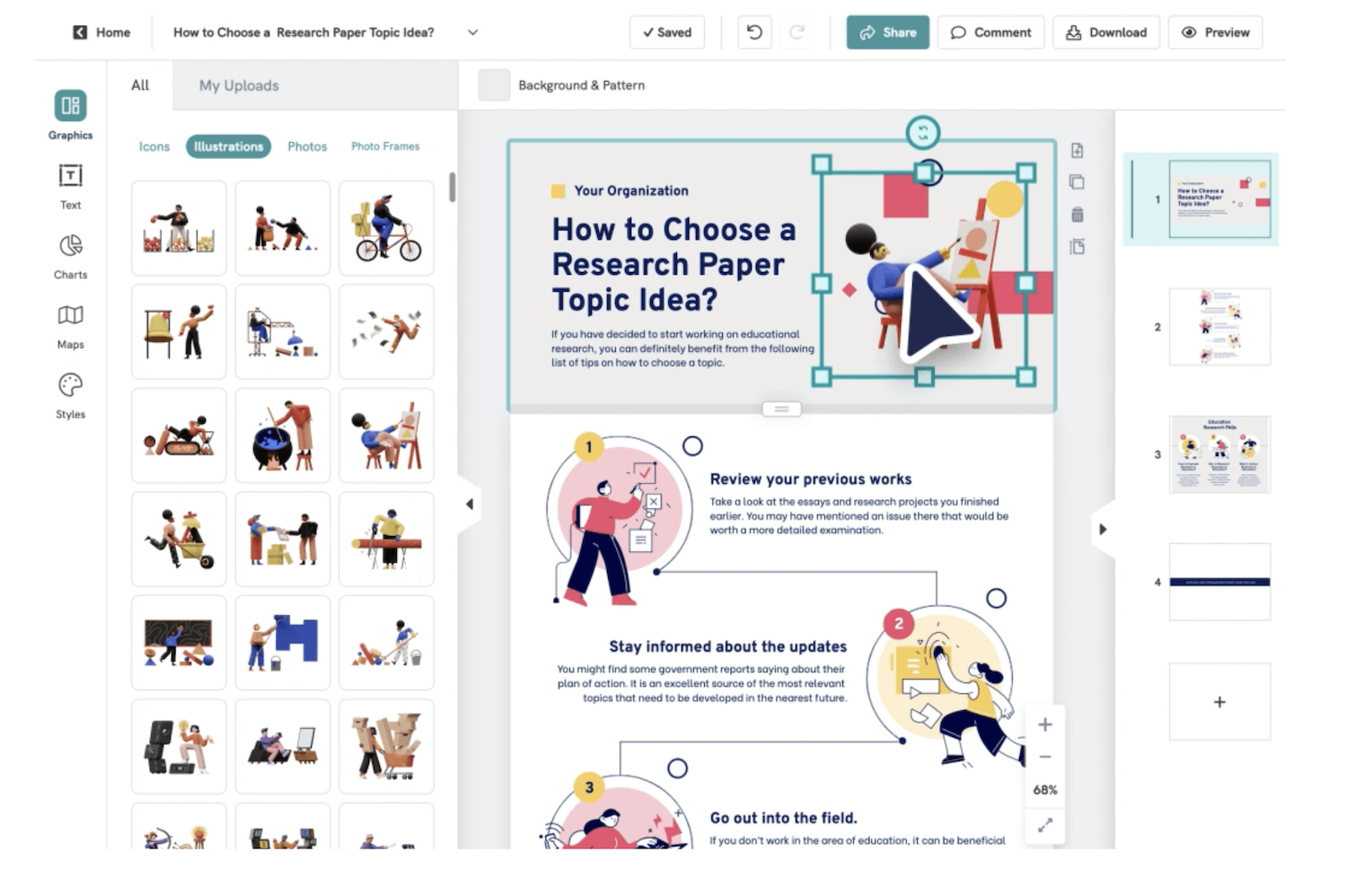Managing employee compensation is not just about setting salaries and bonuses but also ensuring these decisions are fair and competitive. Compensation management software automates and simplifies compensation processes, making it easier to handle payroll, stay compliant with laws, and boost overall efficiency.
What is Compensation Management Software?
Compensation management software is a tool that helps organizations manage employee pay and benefits. It acts as a central hub where various pay-related tasks like handling salaries, bonuses, and benefits, are managed in one place.
Compensation management solutions come with features that make it easier for businesses to create, oversee, and adjust pay plans. Compensation management software provides a clear view of all employee compensation, helping organizations make better decisions. It also helps ensure compensation practices match the goals of the organization and industry standards.
Why Use Compensation Management Software?
Compensation management software is designed to simplify and improve the process of handling compensation, making it much more efficient and accurate. By automating tasks such as payroll processing and calculations, this tool reduces the amount of paperwork and administrative work for HR teams. Let’s explore how compensation management software become an essential tool for modern HR departments:
Increase Efficiency
One of the main reasons to use compensation management software is that it makes managing pay and benefits much more efficient. Traditional methods, like using spreadsheets and manual calculations, can be slow and prone to mistakes. Compensation management software automates these tasks, which reduces the amount of paperwork and administrative work for HR teams. With automated payroll processing, there’s no need to manually calculate salaries, bonuses, and deductions. This speeds up the payroll cycle and ensures that employees are paid accurately and on time.
Enhance Accuracy
Pay mistakes can lead to unhappy employees and potential legal problems. Compensation management software helps prevent errors by automating calculations and making sure that compensation data is applied consistently across the organization.
Data-Driven Insights
Compensation management software provides powerful tools for analyzing compensation data. These tools offer insights into pay trends and practices, which can help HR professionals make better decisions about salaries, bonuses, and other pay elements. For example, detailed reports can reveal pay gaps, track changes in market trends, and evaluate how well compensation strategies are working.
Compliance and Risk Management
Following labor laws and regulations is an important part of managing compensation. Compensation management software often includes tools to help organizations stay compliant with changing laws and regulations. These tools automatically update compensation practices to ensure that they meet legal requirements, which reduces the risk of legal issues and fines.
Features of Compensation Management Software
Compensation management software offers several powerful features designed to streamline and enhance the management of employee pay and benefits:
Pay Calculations
One of the most important features of compensation management software is automated pay calculations. It automatically figures out salaries, bonuses, and other pay based on rules you set. This makes payroll much easier and faster. As a result, employees get paid accurately and on time.
Compensation Planning
Compensation management software allows you to adjust pay structures to fit your company’s needs. With this software, you can create different pay packages like base salaries, performance bonuses, and stock options. This means you can tailor compensation plans to match your company’s goals and reward employees in a way that works best for you. This flexibility helps ensure that compensation packages are fair and motivating, which can boost employee satisfaction and keep top talent.
Compliance Management
Compliance management tools help you stay updated with labor laws and regulations. Compensation management software automatically updates with new regulations and checks that your compensation practices meet legal requirements. This helps avoid legal problems and ensures that your compensation practices follow industry rules.
Total Rewards Management
Total rewards management is a comprehensive feature of compensation management software that covers all aspects of employee compensation, including salary, bonuses, benefits, and non-monetary rewards. The tool provides a complete view of total rewards, allowing organizations to design balanced and competitive compensation packages that enhance employee satisfaction and retention.
Bonus Management
Compensation management software helps organizations manage and distribute bonuses. The software allows businesses to set criteria for bonuses, track their distribution, and ensure that rewards are fairly distributed. This helps maintain transparency throughout the bonus process, ensuring that all rewards are distributed fairly and in accordance with set guidelines. With a clear and organized system, there are fewer chances of mistakes or disagreements, which helps build trust among employees.
Reporting
Reporting tools are crucial for gaining a clear understanding of employee compensation. They provide detailed insights into how salaries, bonuses, and other forms of pay are distributed across your organization. This analysis helps ensure that rewards are fair and competitive among different departments and roles.
The software also tracks compensation trends over time, offering a historical view of salary increases, bonuses, and other adjustments. This helps you stay aligned with market trends and ensure your compensation strategies are up-to-date.
Another key feature is identifying pay gaps. The reporting tools highlight any discrepancies in pay based on factors like gender or tenure, allowing you to address these issues and maintain equitable compensation practices.
Benchmarking
Benchmarking tools allow you to compare your compensation practices with those of other companies in your industry. Compensation management software provides market data and insights so you can set competitive salaries and benefits. This ensures your compensation practices are attractive and aligned with industry standards, which is important for attracting and keeping good employees.
Performance Management
By setting performance metrics and aligning pay with performance outcomes, you can reward high performers and drive better results. This connection between performance and compensation helps motivate employees to do their best.
Goal Setting and Tracking
Compensation management software supports setting and tracking goals for employees. This means you can set specific targets and monitor how well employees are doing in reaching them.
How to Choose Compensation Management Software
With so many options out there, it can be tricky to make the right choice. Here are seven practical tips to help you find the compensation management software that will make managing pay and benefits a breeze:
Ask for a Free Trial
Getting hands-on experience with the CMS is crucial before making a commitment. Start by contacting CMS vendors to request a free trial. This trial period allows you to test the software and explore its features. During this time, engage with the software’s core functionalities, such as payroll processing, bonus calculations, and compensation planning. Pay attention to how intuitive the software feels and whether it meets your company’s specific needs. Use this opportunity to involve your HR team in evaluating the software’s usability and gather their feedback on how well it addresses your current challenges.
Check for Easy Integration
Compensation management software should integrate smoothly with your existing systems like payroll and HR platforms. This means data will flow easily between systems without extra work or errors. If the CMS can’t integrate well, you might end up spending more time fixing data issues than using the software effectively.
Ask the vendor about integration capabilities and request a demonstration of how data is transferred between systems. You may also want to review case studies or ask for references from companies similar to yours to see how well the compensation management software integrated with their existing platforms.
Prioritize User Experience
No one wants to struggle with complicated software. The interface should be clean and intuitive, making it easy for your HR team to use. If the software is easy to navigate, your team can get up to speed quickly. A user-friendly design means less training and fewer headaches.
During your trial, evaluate how easy it is to perform tasks like setting up compensation plans, generating reports, and adjusting pay structures. If possible, involve a few members of your HR team in testing the software. Gather their feedback on the interface’s ease of use and any challenges they encounter.
Evaluate Customer Support
Make sure the vendor provides excellent customer support. Look for options like live chat, phone support, or email assistance. Good support can help you resolve issues swiftly and keep your CMS running smoothly.
During your trial, test the responsiveness and helpfulness of the support team by asking questions or reporting issues. Look for vendors that provide support resources like user guides, video tutorials, and knowledge base.
Consider Future Scalability
Finally, think about the future. Your company is likely to grow, and your compensation management software should be able to grow with you. Look for a system that can handle more data and complex compensation plans as your business expands. Select a CMS that will continue to meet your needs as your company evolves.
Conclusion
Compensation management software is a valuable tool that helps businesses manage employee pay and benefits more effectively. It boosts efficiency, improves accuracy, and provides insights for better decision-making while ensuring compliance with regulations.
When selecting the right CMS, consider your company’s specific needs, look at important features, and check for ease of use and support. By adopting compensation management software, you can streamline your pay processes and create fair, competitive compensation plans that benefit both your business and your employees.




